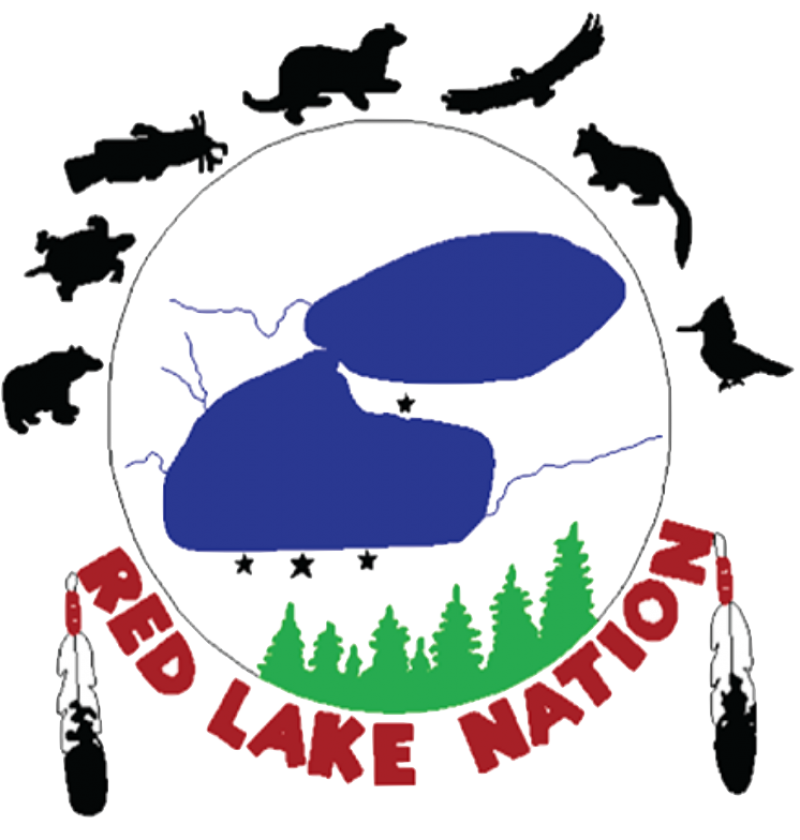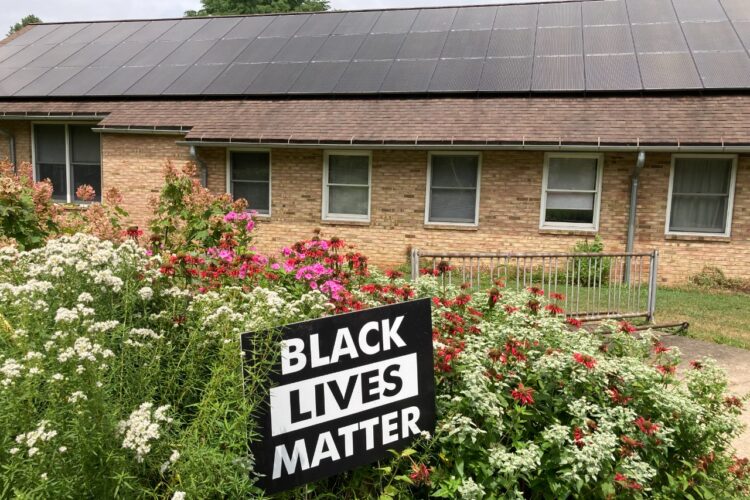Red Lake Nation’s Path to Solar Energy

by Ralph Jacobson.
The people of Red Lake Nation, in northwestern Minnesota, had been talking for over a decade about ending their dependence on electricity generated from coal. This is a story about their journey toward renewable energy.
Mercury falls into the water of midwestern lakes from plumes of smoke that float eastward from power plants out west. This slow build-up of mercury in Red Lake’s water will eventually ruin the fishery from which the community derives a large part of its income. The people of Red Lake also know that to save their fishery, many other communities will have to end their dependence on coal too. That’s a call to leadership, a tall order for a poverty-stricken, rural Indigenous community. But the people of Red Lake are strong-willed; they did not sign the Indian Allotment Act, so their land base was not taken from them. And they are resisting Enbridge’s Line 3 tar sands pipeline.
The tribe began to study wind power around 2007, but the local utility was not encouraging and financing never materialized. In 2014, tribal chairman Darrell Seki went to a conference and saw what some Indigenous communities were doing with solar in California. In the winter of 2016, I was hired to conduct a feasibility study for placing solar arrays atop ten of the public buildings in the community.
There are three easily discernible benefits for our Red Lake Solar Project: protecting the water of Red Lake, long-term energy sovereignty, and job training for tribal members who could then be employed in solar power system installation elsewhere. Now that’s using solar energy for robust economic development!
While I was working on the feasibility study and solar designs, two financing efforts by others failed to materialize. I had the knowledge from twenty-five years in the solar industry, and a little money, so I decided to try my hand at financing the smallest of the Photovoltaic (PV) systems: 67 kilowatts on the Nation’s government center. Five banks declined to consider loans to the project, although by 2017 solar was well-established as a solid asset for debt-financing. I couldn’t help but think that if I were to consider four hundred years of United States history, who would I rather make a deal with: the US government or an Indigenous tribal nation?
And then I attended the 2017 Transition USA Conference at Macalester College in Saint Paul, MN. There I found a creative option for our project: crowdsourced microloans were being used in places like South Detroit, Oakland, and Atlanta to help fund projects that benefited communities, but were unattractive to government and big capital. What ensued was nine months of deep conversations among people in the Twin Cities Quaker and Unitarian communities. We raised $115,000 through twenty-three “microloans,” and I added $15,000 of my own money to build the system on the government center (and an additional $11,000 for a top-notch attorney to put the deal together correctly).
To install the solar, I had been planning to bring one of my crews from the Twin Cities to Red Lake and hire local community members. But then I met Robert Blake, an urban member of Red Lake who was working in the solar industry and dreamed of starting his own solar installation business. He formed the Solar Bear company and found very talented tribal members to work on the crew. Aside from my design and commissioning of the system, they did the entire installation.
Almost precisely on the winter solstice, December 20, 2018, that first PV system began generating power, and for almost three years it has provided about 25% of the electricity requirements at the Red Lake government center.
A definition of integrity that resonates with me is “doing what you say you are going to do.” The history of relations between European American settlers and Indigenous Americans demonstrates a profound lack of integrity on the part of my own ancestors. It has been a great honor to demonstrate integrity in my work with the Red Lake Nation as they move forward with their aspirations for sustainability.
Ralph Jacobson is a member of Prospect Hill (MN) Friends Meeting and the founder and CEO of IPS Solar. He and his team have completed over 1,000 renewable energy projects.

